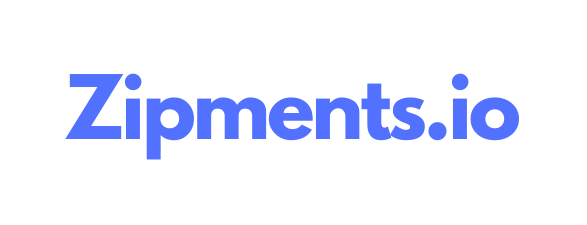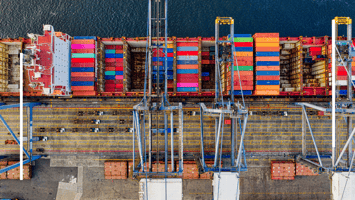Getting your goods from A to B can be a daunting task, even for the best of importers. However,...
How To Prevent a Manifest Hold - U.S. Imports
Customs clearance can be frustrating and time consuming. When importing, it is important to be aware of what causes holds at customs, in order to prevent delay and penalties. If you know why a hold is occurring, you can make sure your shipment doesn't spend extra time stuck in customs. One common hold which may occur when importing to the United States is known as a manifest hold, and it’s not always the importers fault. Here’s what you need to know about the causes, and how you can best avoid a manifest hold in the future.
.png?width=2240&height=1260&name=Brown%20Simple%20Tips%20Shoot%20Blog%20Banner%20(3).png)
When importing to the United States, details are usually sent to CBP (Customs and Border Protection) ahead of time, with cargo information filed prior to arrival. A manifest is the collection of relevant documentation for a shipment, essential for clearance. Usually customs brokers help an importer file their manifest, but it's not always the case.
As per the CBP, a manifest hold is a delay that is placed on a shipment or imports coming into the U.S., due to a number of different reasons. Sometimes, manifest holds are referred to as U.S. Customs Inspection Hold. At its basic level, the manifest hold occurs while documents are reviewed for their accuracy and detail, and they do not last too long, usually less than 24 hours. However, sometimes delays last longer, and this would be a case in which a customs broker would then be notified of the manifest hold. The CBP will put a hold on a shipment to verify information or while waiting on additional documents. Holds often lead to money or time lost, so it's important to understand them.
What Causes a Manifest Hold?
Manifest holds are issued to imports which are incoming to the United States, but are not in compliance with regulation. Usually, they occur because the importer has not filed the ISF on time or the ISF contains errors. The ISF is the Importer Security Filing and can be submitted by the importer or customs broker acting as importer of record. Any other missing or incorrect documents required for import can also be cause for a manifest hold. Documents having errors or disorganization can lead to holds, which is why it is essential to prepare for shipments carefully.
In other instances, a manifest hold occurs when a shipment is on hold for a random inspection. This allows CBP to ensure that containers match the manifest, and so random checks are conducted, since they cannot logistically check every single one. You can usually expect shipments which are more at risk or need to abide by stricter regulations encounter a manifest hold as as a result. Shippers who are known to import regularly and in compliance are less likely to face a spot inspection, so remaining in compliance is key to less delay in the long run.
What Happens If Your Shipment Is Under Manifest Hold?
Usually a manifest hold will also result in penalties or fines for the errors encountered. Sometimes the fines can go up to $5000 USD per mistake, or the cargo can be detained. In some cases, if there is reason for further investigation, the shipment may be transferred to another facility. Remember that the CBP can also fine you for delaying port activity or for storage of the shipment which was being inspected. The fines or penalties are dependent on the reasoning behind the hold, the type of mistake and how many errors there were in total for the shipment.
How to Prevent a Manifest Hold
While you can’t control a random inspection, there are still ways to ensure that you have less of a reason for shipments to be held. Joining a trade partnership (CTPAT) is a good idea to help reduce delay, as members are viewed as low risk to CBP. There are also another two key ways to ensure you avoid a manifest hold whenever possible.
- Document Prep
- Customs Broker Usage
Documents
The primary way to prepare is to ensure all documents are present, organized and accurate. The most essential documents to doublecheck for accuracy are the Bill of Lading, Certificate of Origin and your Packing List.
A Certificate of Origin can further prove that your shipment meets requirements for entry, while the Packing List is one of the first steps toward creating the rest of your shipping documents including the BOL. The Bill of Lading contains information which is used to create a shipping manifest, which is then sent over to customs. Because the information is heading to customs directly, it is essential to ensure there are no discrepancies in your shipping documents.
Customs Broker Usage
A licensed customs broker knows the correct way to import and how to ensure that documents follow regulation and protocol. Their job is to help you avoid penalties, so hiring one will likely reduce the odds of a manifest hold.
Other Types of Cargo Holds You May Need To Know
- Commercial Enforcement Hold: A hold placed on cargo to address issues of customs regulations, and can be placed by customs/CBP, or other government agencies such as the FDA or FCC.
- CET Hold: Holds dealing with contraband, such as guns or drugs. Dealt with by the Anti-Terrorism Contraband Enforcement Team.
- PGA Hold: Holds placed on shipments at the request of regulating government agencies such as the FDA or USDA. It's named PGA for “Participating Government Agencies” hold.
- Statistical Validation Hold: Holds on shipments due to issue in information declared and what cargo is supposed to be based on history; information is checked such as discrepancies in weight, or value.
Delays in import clearance can be frustrating, but you can avoid most holds with a little planning and awareness. While some inspections are inevitable and outside your control, filing the correct paperwork the first time is essential. We all know what a headache customs clearance can be, but we’re here to make it fast and easy. Using Zipments.io ensures accuracy, speed and greater transparency between shippers, brokers and drivers. It’s the best way to streamline your customs clearance process and grow your business.


.png?height=200&name=Orange%20Modern%20Minimal%20Blog%20Writing%20YouTube%20Thumbnail%20(8).png)
.jpg?height=200&name=White%20Minimalist%20Aesthetic%20Magazine%20Photography%20Portfolio%20Presentation%20169%20(19).jpg)